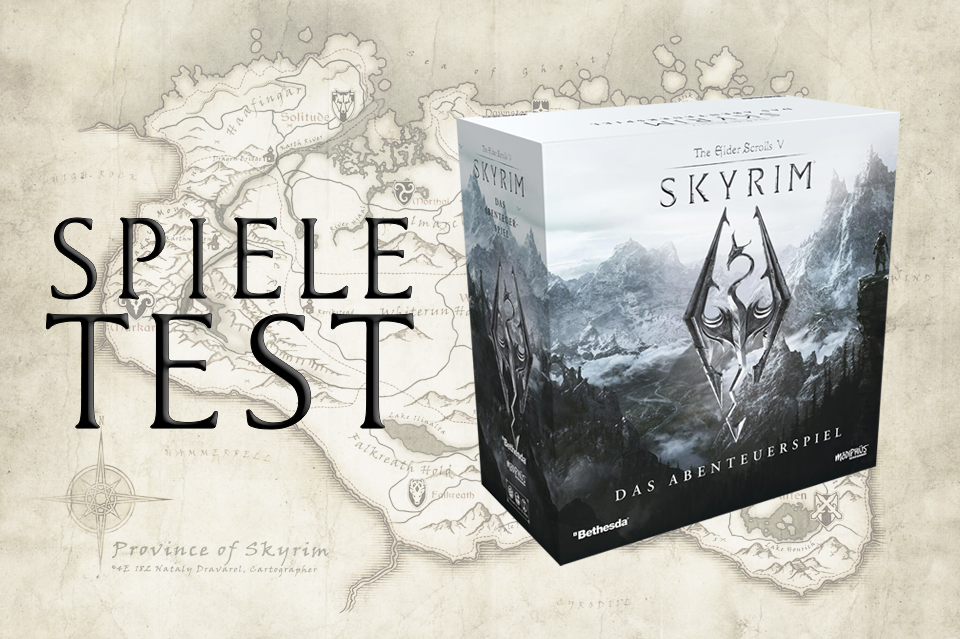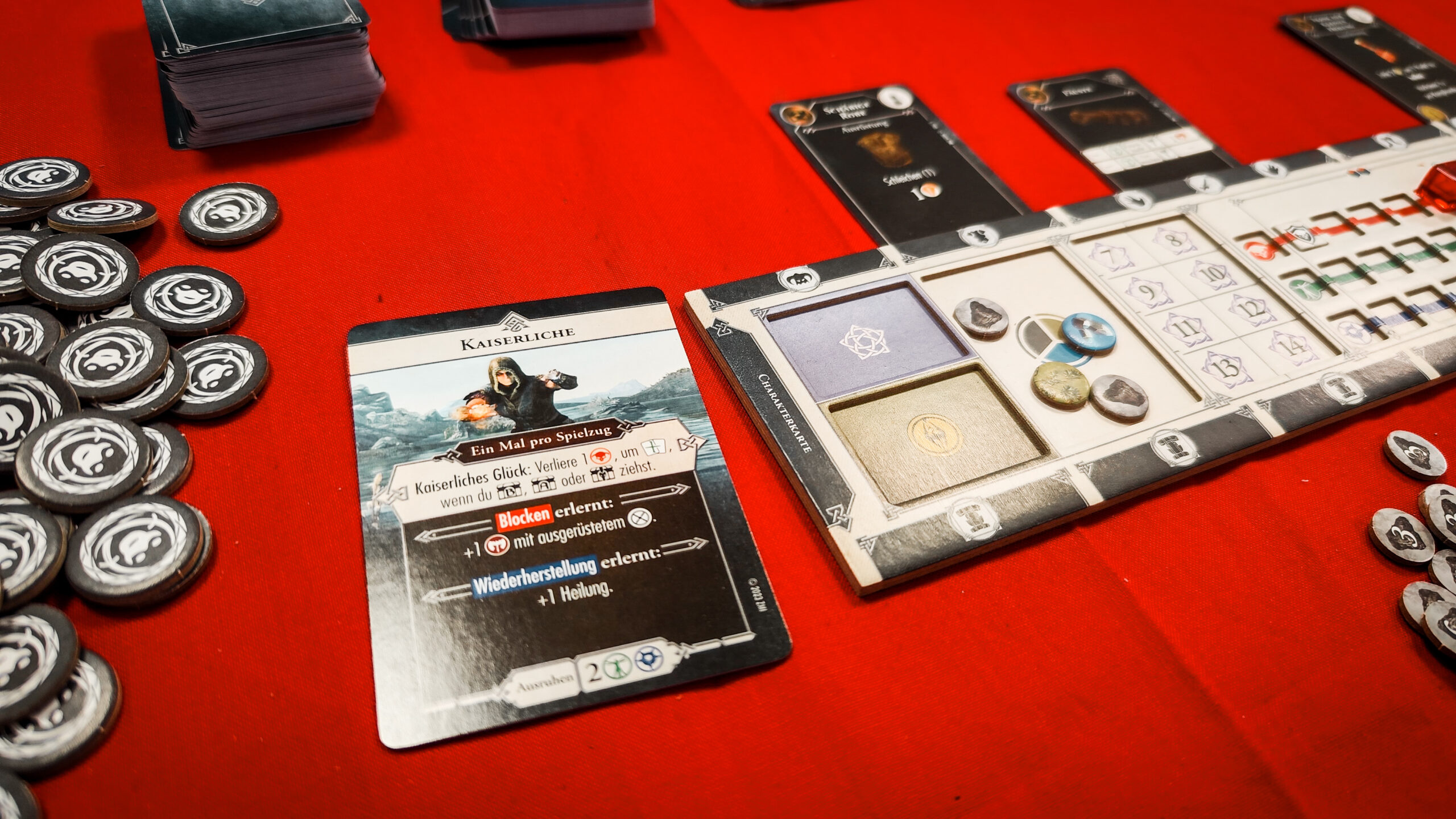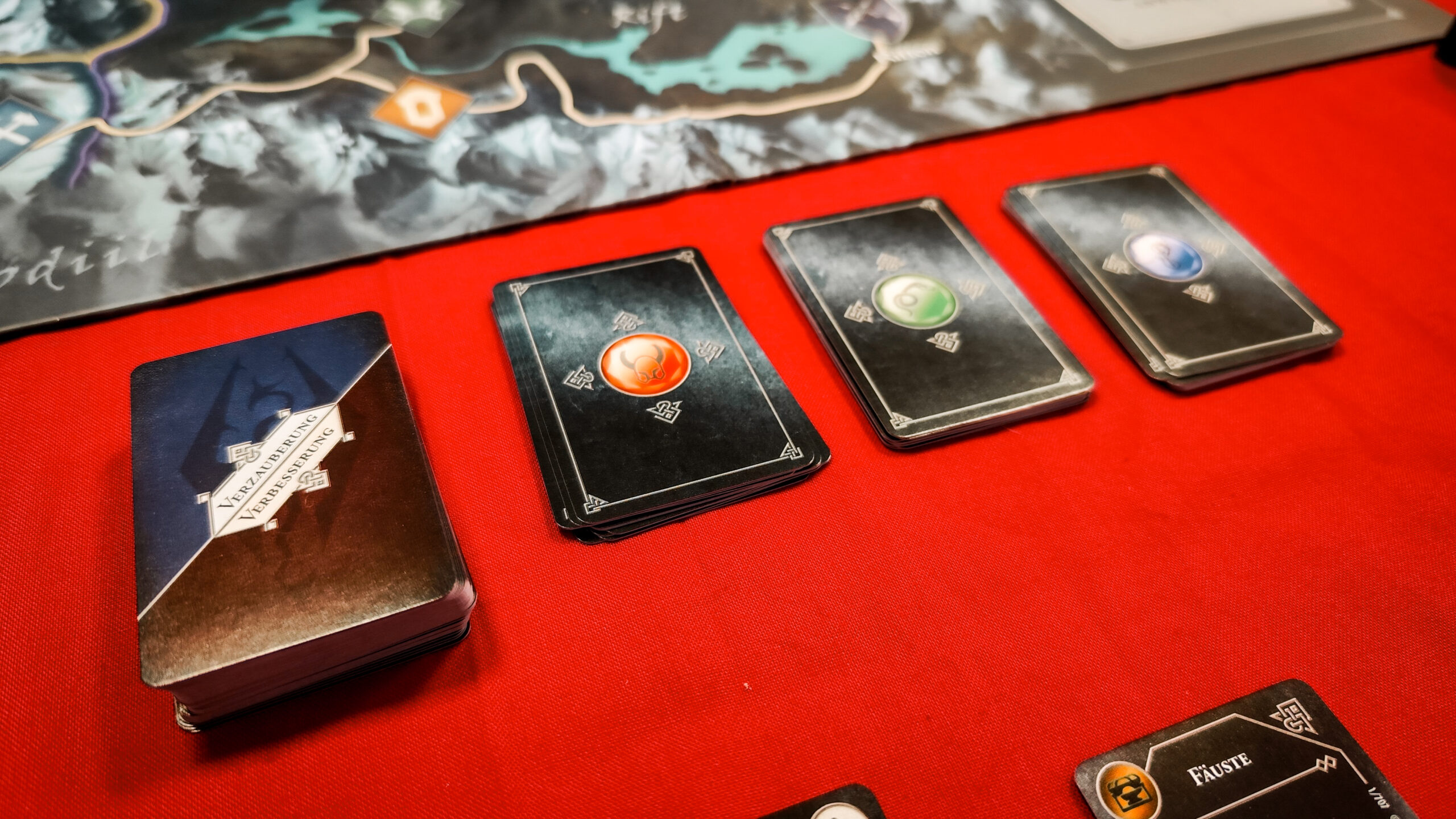
Fus Ro Dah!
With over 60 million copies sold, Bethesda’s Skyrim is one of the most successful video games ever. In the open world game, which is bursting with dragons, dark undead and secret magic, you can easily spend over 100 hours fighting your way through countless dungeons, mastering exciting quests and developing and improving your character in a variety of ways.
So it’s no wonder that this digital luminary has now been given its own board game adaptation. We were curious and tested the game for you.
First of all: this board game is definitely not for beginners! However, if you already have experience in dealing with extensive rulebooks and complexly designed game cards, you are welcome to try Skyrim. A little prior knowledge from the video game is sometimes helpful, but not a must.
The game is played with six different characters: Imperial, Nord, Dunmer, Altmer, Orsimer and Kahjiit. Each character has their own skills, which are an advantage at one point or another in the game. Up to four players can take part, but solo mode is also possible.
Because Skyrim is very complex and promises a long playing time, it comes with lots of cards, tiles, stones and dice. Getting an overview and setting everything up correctly therefore takes some preparation time.
Six chapters can be played in two campaigns. However, we skipped the campaigns in the beginning and simply immersed ourselves in the world of Skyrim – learning by doing!
At certain locations, e.g. in towns, cards with smaller quests can be drawn, which will then lead you to other quests. You can earn experience points, gold or useful materials with every successfully completed quest. Sometimes valuable treasures such as amulets, weapons or pieces of armor are up for grabs.
The experience points help you to level up your character and thus increase your health, stamina and magical powers. Logically, the latter give you more power when fighting enemies.
Speaking of which, what does a fight like this actually look like?
If you enter a dungeon or a cave, for example, you have the opportunity to explore this place and will then encounter enemies. Your opponents are drawn at random from a pile, but usually correspond to your game level. Both your attacks and those of your opponents are now diced. The luck of the dice was not always on our side here and when that is the case, it naturally has consequences. Lost battles can deprive you of valuable rewards.
The same applies to unfinished quests. If you do not successfully complete one or more tasks, this will affect the principality in which you complete them. Example: you mess up an important quest in Whiterun – the consequence of this is an increased danger level, which means that the market is closed or you can only enter the town if you pay gold. Each of your actions can therefore have consequences.
What is our conclusion?
Due to the lengthy preparation time, including studying the rules, it takes a while before you can start playing. However, you should not be discouraged by this. After a bumpy start, we became more familiar with the rules and gameplay and then Skyrim the adventure game really started to be fun. The ability to level up your character encourages you to take on further tasks and master them successfully. The numerous quests guarantee a long playing time and you can certainly play several times without getting bored. We recommend Skyrim for fantasy enthusiasts, passionate board gamers and fans of role-playing games.




